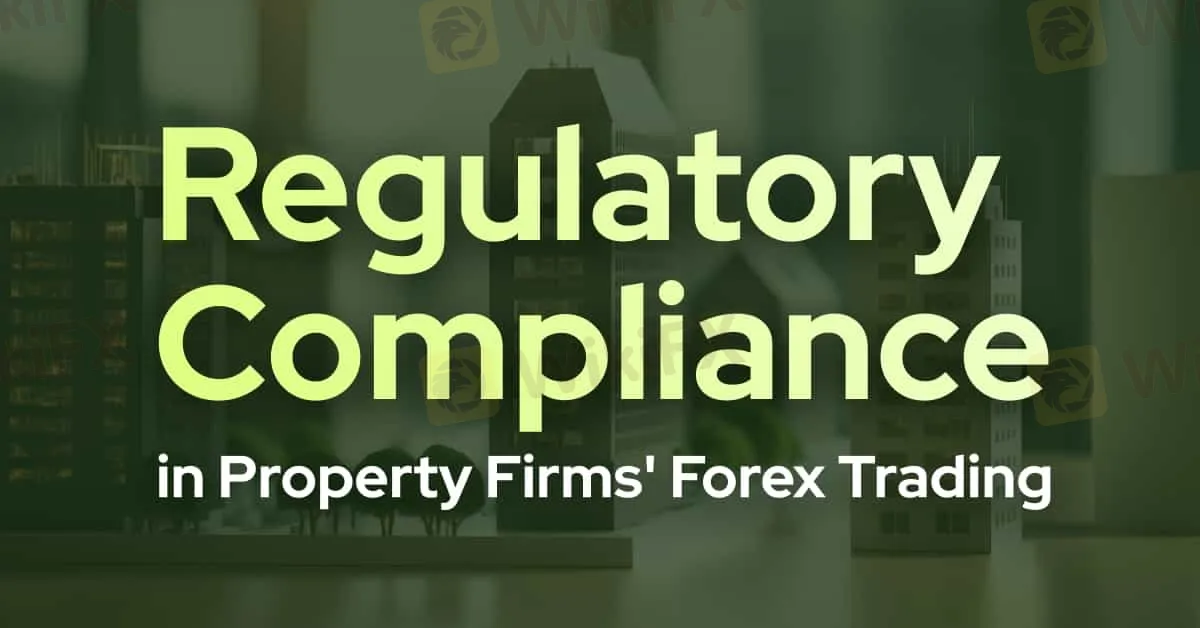简体中文
繁體中文
English
Pусский
日本語
ภาษาไทย
Tiếng Việt
Bahasa Indonesia
Español
हिन्दी
Filippiiniläinen
Français
Deutsch
Português
Türkçe
한국어
العربية
Regulatory Compliance in Property Firms' Forex Trading
Abstract:In the dynamic world of forex trading within property investment portfolios, regulatory compliance stands as the bedrock ensuring investor protection and market integrity. Property firms engaged in forex trading on behalf of their clients must navigate a complex regulatory landscape to safeguard their operations and uphold industry standards. This article delves into the critical importance of regulatory compliance in property firms' forex trading activities, shedding light on the regulatory frameworks and compliance strategies employed by these firms.

In the dynamic world of forex trading within property investment portfolios, regulatory compliance stands as the bedrock ensuring investor protection and market integrity. Property firms engaged in forex trading on behalf of their clients must navigate a complex regulatory landscape to safeguard their operations and uphold industry standards. This article delves into the critical importance of regulatory compliance in property firms' forex trading activities, shedding light on the regulatory frameworks and compliance strategies employed by these firms.
Regulatory Landscape:
Property firms operating in the UK and Europe encounter a robust regulatory environment overseen by regulatory authorities such as the Financial Conduct Authority (FCA) and the European Securities and Markets Authority (ESMA). These regulatory bodies impose stringent requirements and standards on firms engaged in forex trading to ensure transparency, fairness, and investor protection. Compliance with regulatory guidelines is essential for property firms to gain and maintain the trust of their clients while operating within legal boundaries.
Compliance Requirements:
Compliance with regulatory requirements entails adherence to a multitude of rules and regulations governing various aspects of forex trading. Property firms must obtain necessary licenses and authorizations from regulatory authorities to offer forex trading services legally. They are also obligated to implement robust risk management frameworks to mitigate currency risks and safeguard clients' investments. Additionally, property firms must adhere to strict reporting and disclosure requirements, providing clients with comprehensive information about their forex trading activities, risks involved, and potential returns.
Regulatory Challenges:
Navigating regulatory compliance poses significant challenges for property firms engaged in forex trading. The regulatory landscape is constantly evolving, with frequent updates and amendments to existing regulations. Property firms must stay abreast of regulatory changes and ensure timely implementation of compliance measures to avoid regulatory scrutiny and potential penalties. Moreover, compliance with cross-border regulations adds another layer of complexity, especially for property firms operating across multiple jurisdictions within Europe.
Compliance Strategies:
To effectively manage regulatory compliance, property firms employ a range of compliance strategies and best practices. This includes establishing robust internal compliance teams tasked with monitoring regulatory developments, conducting regular compliance audits, and ensuring adherence to regulatory guidelines. Collaborating with legal experts and compliance consultants also enables property firms to navigate regulatory complexities effectively and implement compliance measures tailored to their specific business needs.
Conclusion:
In conclusion, regulatory compliance is paramount for property firms engaged in forex trading on behalf of their clients. By adhering to regulatory requirements, property firms not only safeguard their operations and reputation but also ensure investor protection and market integrity. Amidst a rapidly evolving regulatory landscape, property firms must remain vigilant, proactive, and adaptable to regulatory changes to sustain their forex trading activities successfully. By prioritizing regulatory compliance, property firms can instill confidence and trust in their clients while contributing to a thriving and compliant forex trading ecosystem.
Finding More Information:
For those interested in learning more about regulatory compliance in forex trading and property investment, WikiFX serves as a valuable resource. WikiFX provides comprehensive information and ratings on forex brokers and investment firms, helping investors make informed decisions and navigate regulatory landscapes effectively. To explore further, visit WikiFX's website.

Disclaimer:
The views in this article only represent the author's personal views, and do not constitute investment advice on this platform. This platform does not guarantee the accuracy, completeness and timeliness of the information in the article, and will not be liable for any loss caused by the use of or reliance on the information in the article.
Read more

Axi Reveals Game-Changing Edge Score Tool to Elevate Traders
Axi launches the Edge Score Explainer, a tool providing traders with real-time insights, personalized metrics, and actionable data to enhance trading performance.

High Risk, High Returns: Is This True?
Leverage is one of the most talked-about tools in trading. It promises big returns but comes with huge risks. Traders often wonder if leverage is a blessing or a curse. There are arguments on both sides. Some traders believe it is a game-changer. Others think it can ruin your account. What is your take on this?

FCA Plans to Transform Financial Regulations in the UK
The Financial Conduct Authority (FCA) has revealed plans to reform its regulatory framework to support economic growth in the United Kingdom.

Project Manager Loses Over RM138,000 in Shocking Investment Scam
A 37-year-old project manager lost over RM138,000 to an investment scam after being lured by promises of 20% returns. The victim was deceived by a fraudulent caller posing as a bank employee and transferred funds through 30 online transactions. The scam involved a mule account, leading to an investigation under Sections 420 and 424 of the Penal Code. Authorities urge the public to verify investment opportunities with trusted organizations to avoid similar schemes.
WikiFX Broker
Latest News
IG Japan Extends US Stock CFD Trading Hours in 2025
ALERT! Warning against Livaxxen
Which Zodiac Sign Makes the Best Trader?
Plus500 Collaborates with Topstep, Prop firm
Robinhood Launches Crypto Trading Services in Spain
Archax Secures FCA Approval to Oversee Crypto Promotions in the UK
CLS Global Admits to Crypto Fraud
Philippine SEC Urges Caution Regarding Ecomamoni
Become Women Brand Ambassador of Yamarkets
Naira Falls Against Dollar as Nigeria Reshapes Economic Blueprint
Currency Calculator


